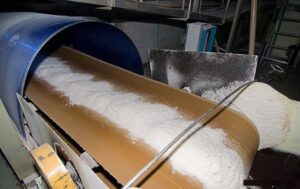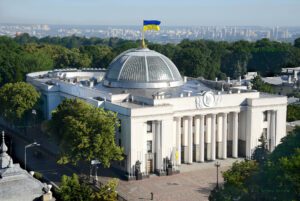
Production of beer (except for non-alcoholic beer with an alcohol content of up to 0.5% ABV) in Ukraine decreased by 6.1% in January-November 2021 compared to the same period in 2020, to 156.6 million decaliters, according to the website of the brewers association Ukrpyvo.
At the same time, during the specified period, malt production decreased by 19.6%, to 195,580 tonnes.

Sugar production in Ukraine as of December 17 amounted to 1.25 million tonnes (more by 110,000 tonnes for the period on December 3-17), in general, 8.87 million tonnes of sugar beet (more by 720,000 tonnes) were processed, according to the website of the Ukrtsukor National Association of Sugar Producers.
According to the data on the website of the Ministry of Agrarian Policy and Food, as of December 17, Ukrainian agrarians harvested 10.53 million tonnes of sugar beet (98.8% of the forecast) with a yield of 469.7 centners/ha.
Thus, at the moment, 84.2% of the sugar beet harvested in the current season has been processed.

Ukraine will receive 50 Airbus helicopters in 2022, Interior Minister Denys Monastyrsky has said.
“Next year there are very ambitious plans for high-quality equipment and a status of the largest aircraft fleet in Europe. So, we will receive 50 modern French-made Airbus Helicopters,” Monastyrsky wrote on his Facebook page.
He noted that they will build a Situation Monitoring Center, which will analyze satellite thermal images and help eliminate wildfires at an early stage.
According to the minister, all this equipment will ensure the implementation of two important projects – Single Aeromedical Space and European Fire Safety Hub.
Monastyrsky explained that Single Aeromedical Space will allow Ukraine to be covered with helicopter bases for air evacuation and transportation of donor biomaterials. The European Fire Safety Hub will help prevent up to 90% of wildfires through the use of fire-fighting aircraft manufactured by Antonov State Enterprise.
<<< back

The Verkhovna Rada has passed a law on amending some laws regarding transparency in the extractive industries (bill No. 3790 of July 3, 2020).
Some 344 MPs voted for the legislative initiative by a number of MPs from various factions, in particular Andriy Zhupanyn and Ostap Shypailo (the Servant of the People faction).
The law was passed without discussion.
During the meeting, Zhupanyn urged to vote for the document, since it must be adopted by the beginning of next year. “We have already delayed the adoption of this law for a year. It is critically important to pass it before January 1,” he said.
As reported, according to an explanatory note to the bill, its main goal is to improve the provisions of law No. 2545-VIII dated September 18, 2018 on ensuring transparency in the extractive industries and the introduction of new requirements of the Extractive Industries Transparency Initiative (EITI), which Ukraine joined in 2013.
It is noted that the need to adopt amendments is caused by the introduction by the EITI Board of new standards in June 2019, in particular regarding the display of a gender aspect in the activities of companies, the provision of information on the impact of such activities on the environment, as well as the full disclosure of contracts for the use of subsoil resources concluded with the state starting from January 1, 2021.
Thus, in particular, a procedure for disclosing information on subsoil use is being clarified, including disclosing reports (consolidated reports) on payments to the state and information on concluded contracts, as well as production sharing agreements are made public after their state registration.
In addition, reporting for the amount of payments for carbon dioxide emissions is being introduced, and statements on the number of employees will have to be submitted with the determination of the number of employees of each sex. In addition, gender quotas are determined when forming the composition of the multilateral team for the EITI implementation.
At the same time, the terminology is being improved, the range of business entities subject to reporting is being clarified, measures are being determined to accelerate the preparation of an electronic reporting system for the submission and analysis of reports in the extractive industries, and the issue of companies’ liability for false information is resolved.